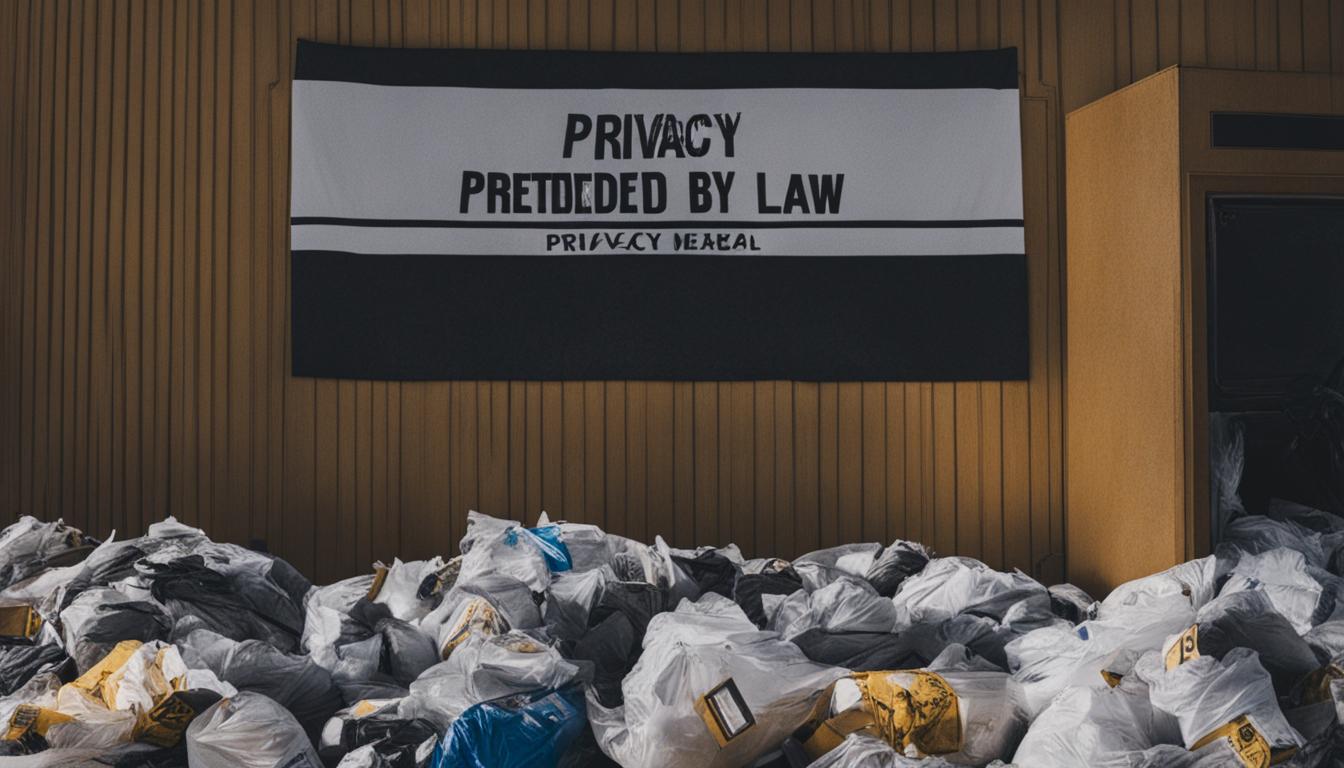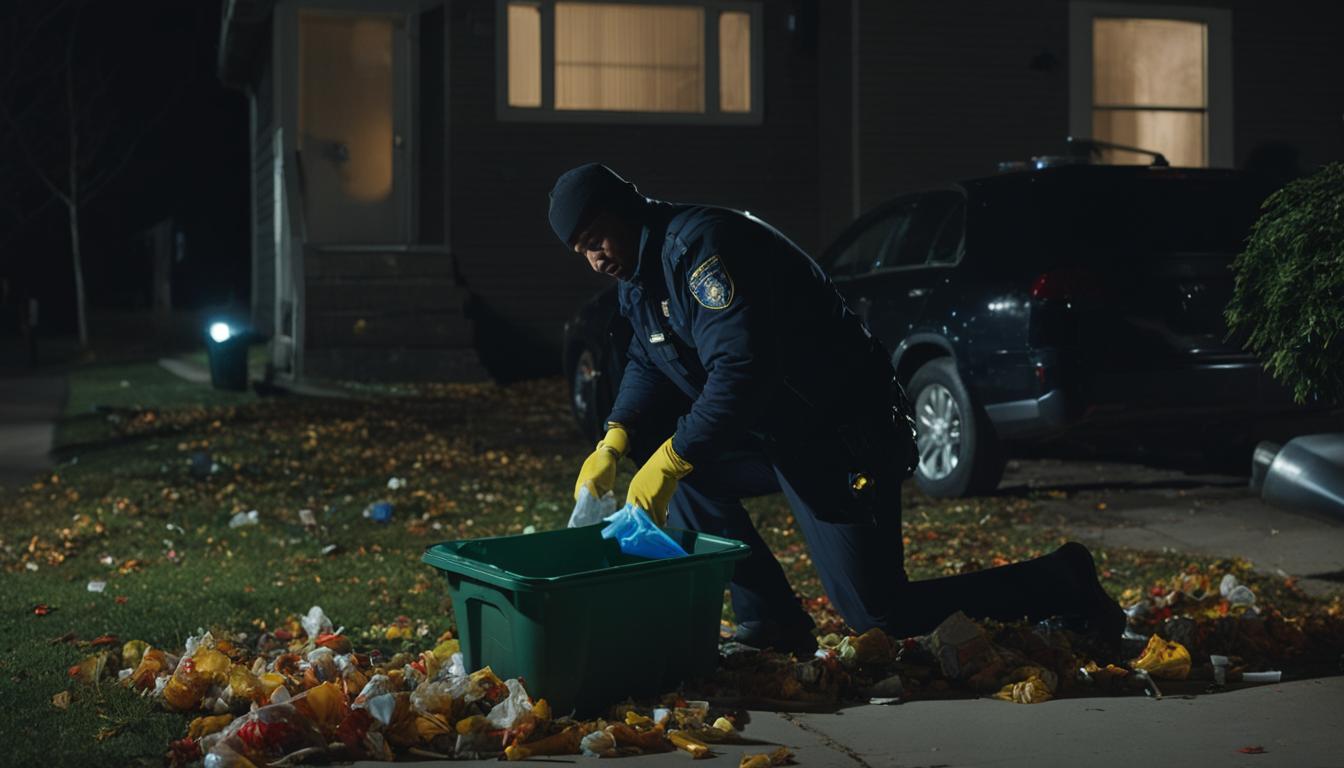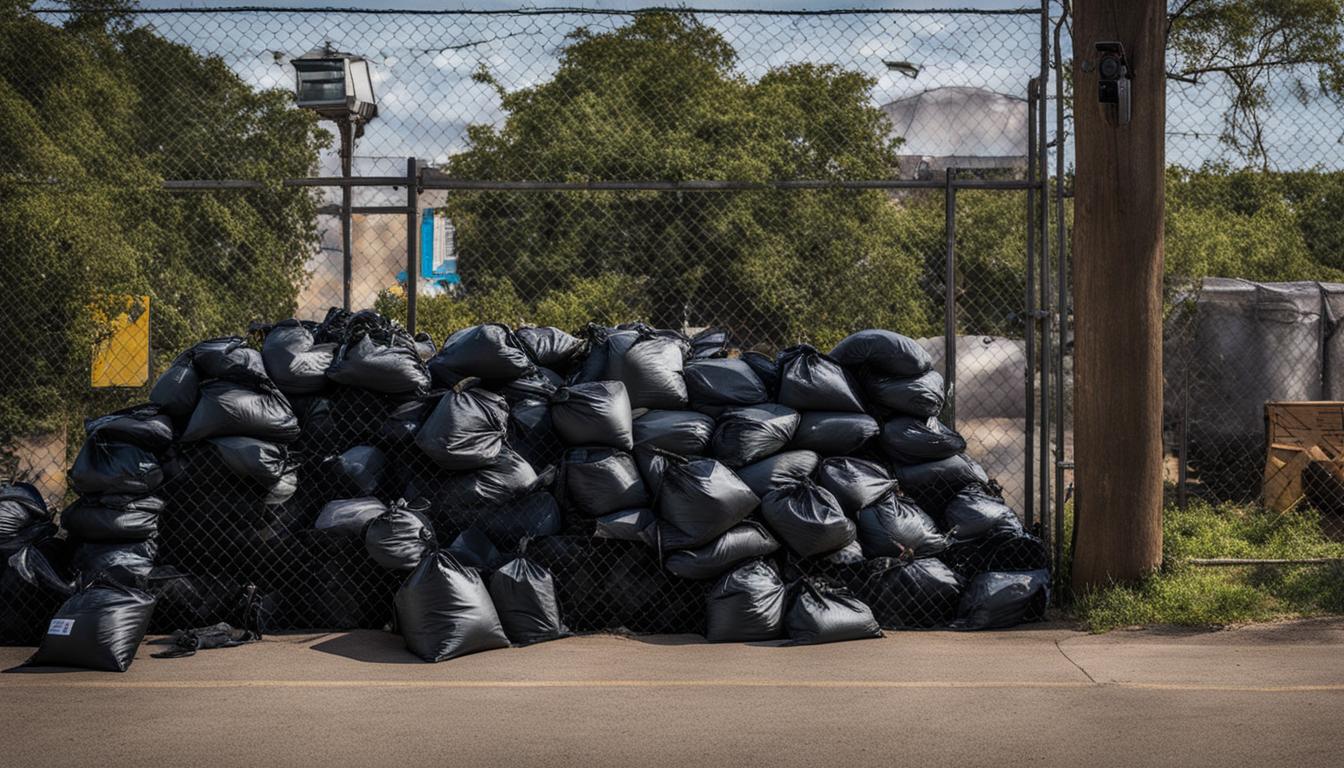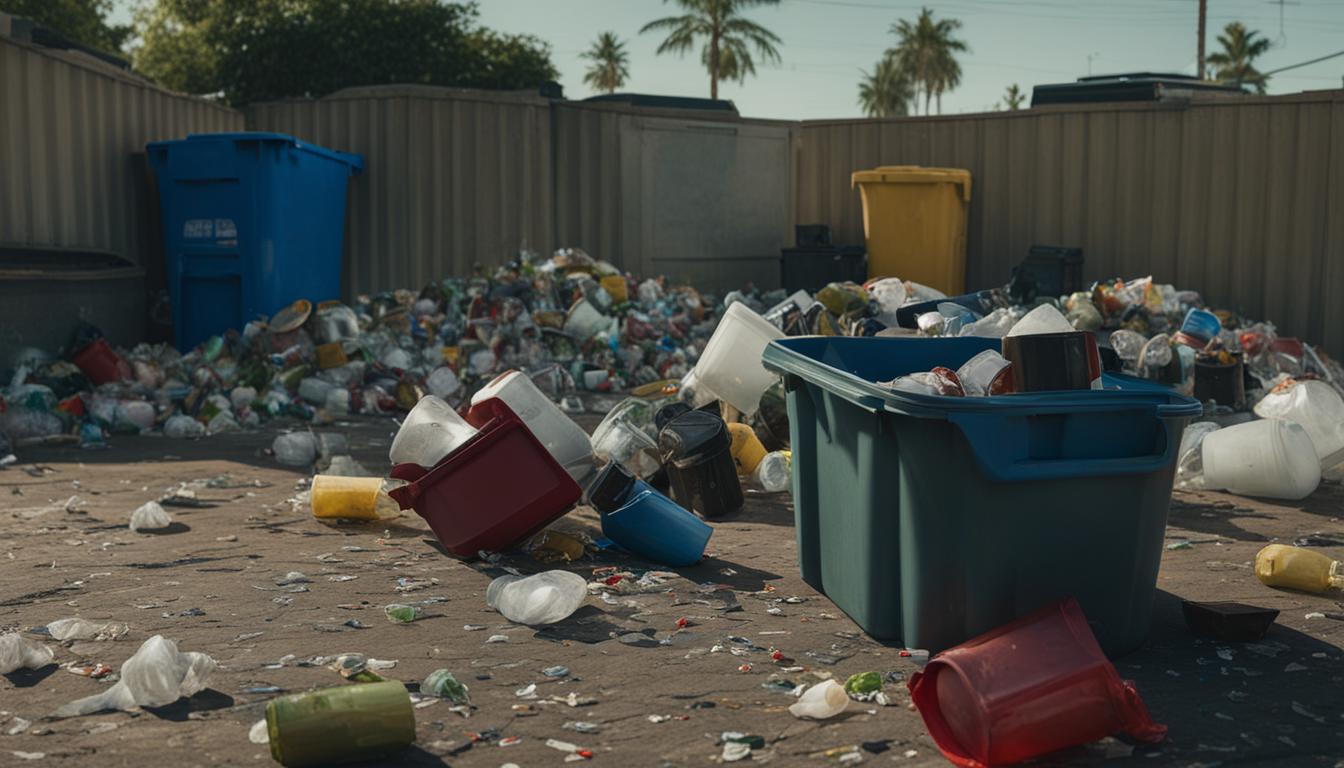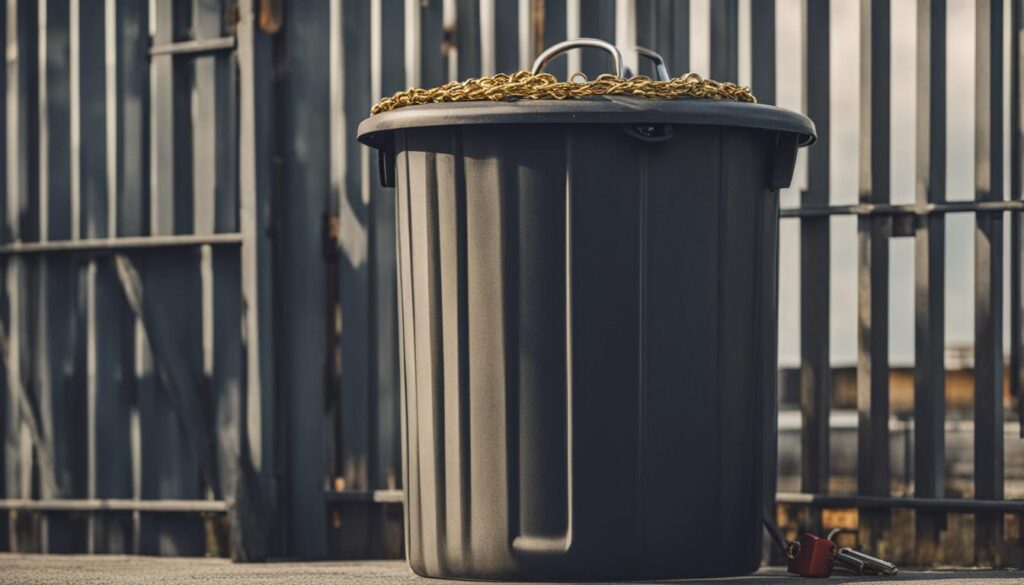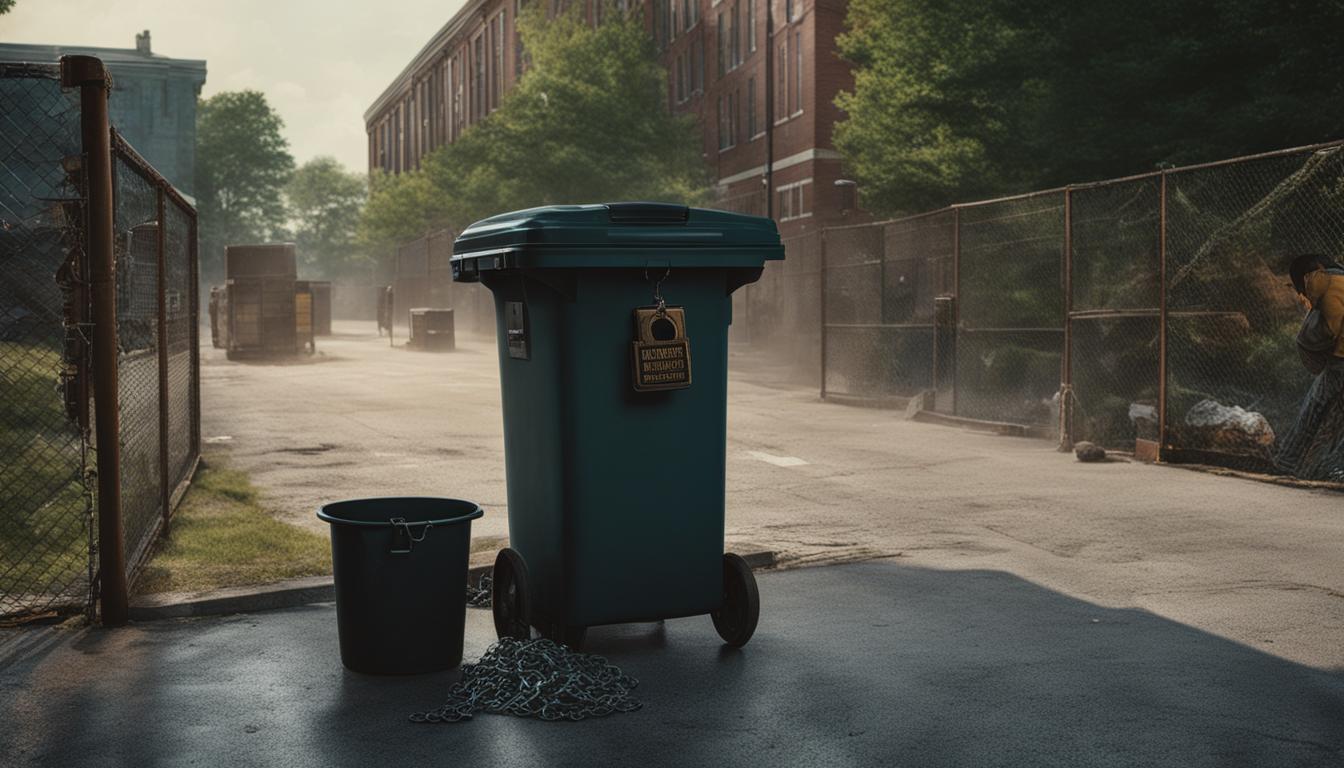Disclosure: This Post Contains Affiliate Links; We earn a commission on purchases.
When it comes to the privacy of your trash, you might be wondering if it is legal for someone to go through it without your permission in Nebraska. Understanding the laws surrounding trash privacy can help you protect your personal information and ensure you are aware of your rights.
According to Nebraska law, once your trash has been placed in a public area for pickup, it is generally considered legal for someone to go through it. Once the garbage is on the curb or in a designated area for disposal, the person who discarded it has forfeited ownership rights.
However, it’s important to note that if your trash is still on private property or in an enclosed area, such as a dumpster, going through it without permission may be considered trespassing. It’s also important to be aware that using someone’s personal information obtained through dumpster diving for illegal purposes, such as identity theft, is a criminal offense.
Key Takeaways:
- Nebraska law generally allows for people to go through your trash once it is placed in a public area for pickup.
- If your trash is still on private property or in an enclosed area, going through it may be considered trespassing.
- Using someone’s personal information obtained through dumpster diving for illegal purposes, such as identity theft, is a criminal offense.
Nebraska’s Stance on Trash Privacy and Dumpster Diving Laws
Nebraska does not have specific laws addressing trash privacy or dumpster diving. The state follows the U.S. Supreme Court precedent, which states that there is no expectation of privacy once garbage is set out for collection. However, going through someone’s trash on private property without permission may be considered trespassing. It’s important to note that while dumpster diving itself is not illegal, using someone’s personal information obtained through dumpster diving for illegal purposes, such as identity theft, is a criminal offense.
Although Nebraska does not have explicit trash privacy laws, individuals should still exercise caution when disposing of sensitive information. Shredding personal documents or securely disposing of them can help protect against potential privacy breaches. While dumpster diving may not be illegal, it’s essential to consider the ethical implications and respect others’ property and privacy.
“Once an individual places their trash outside for collection, they no longer have a reasonable expectation of privacy regarding its contents. However, entering private property to access trash without authorization can be considered trespassing, which is a violation of the law.” – Legal Expert, Jane Smith
Data on Privacy Laws for Garbage in Nebraska
| Privacy Laws for Garbage in Nebraska | Nebraska Stance |
|---|---|
| Trash Privacy Rights | Nebraska does not have specific trash privacy laws. |
| Dumpster Diving | Dumpster diving is not illegal in Nebraska. |
| Illegal Use of Personal Information | Using personal information obtained through dumpster diving for illegal purposes, such as identity theft, is a criminal offense. |
| Private Property | Going through someone’s trash on private property without permission may be considered trespassing. |
https://www.youtube.com/watch?v=S3nbuHoDo5I
Nebraska’s Recycling Ordinances and Enforcement Practices
In Lincoln, Nebraska, there are specific recycling ordinances in place to promote sustainable waste management practices. One notable ordinance prohibits the disposal of grass clippings in the landfill during certain months of the year. This measure aims to reduce unnecessary waste and encourage residents to explore alternative methods of grass disposal.
The city has the authority to enforce these recycling ordinances, which may involve inspecting and monitoring garbage to ensure compliance. However, enforcement practices regarding these ordinances are generally lenient. Instead of strict penalties, the city focuses on educating residents about the importance of recycling and encouraging voluntary compliance.
Over the past 22 years, since the implementation of the grass clippings ban, there have been no reports of individuals receiving tickets for violating the ordinance. The city’s approach prioritizes public awareness and cooperation rather than heavy-handed enforcement measures.
By taking a gentle approach to enforcement, Lincoln, Nebraska aims to foster a culture of sustainability and responsible waste management. The city recognizes the significance of educating and engaging residents, which ultimately has a more positive and long-lasting impact on recycling efforts.
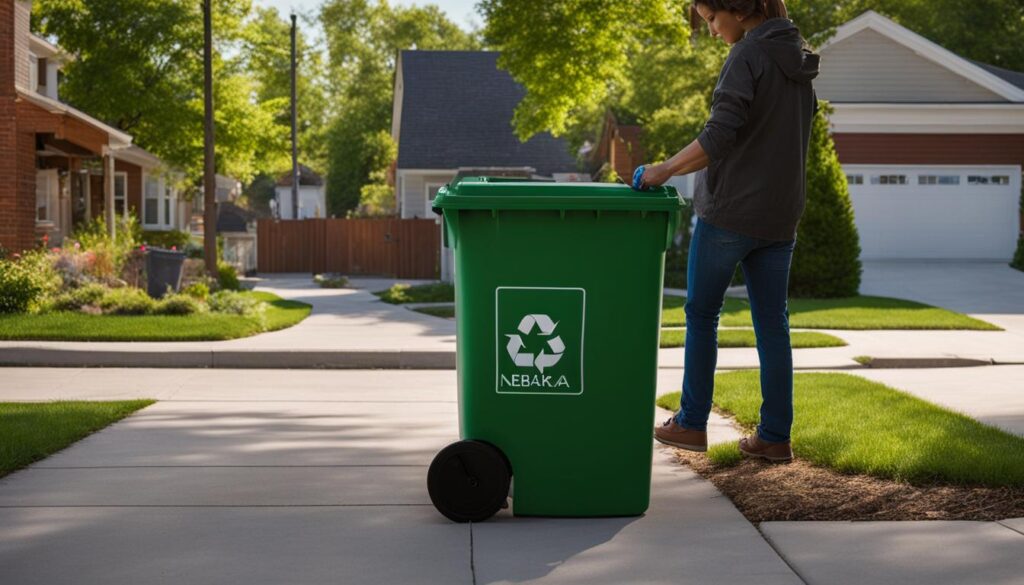
The Ruling in Washington State and its Impact on Nebraska
In recent years, Washington state made a significant ruling regarding garbage snooping and its impact on privacy rights. This ruling has sparked comparisons between the privacy laws of Washington and Nebraska, revealing the contrasting approaches each state takes in this matter.
A ruling in Washington state declared that garbage haulers could not search through people’s trash for banned items. This decision was based on the Washington Constitution, which offers stronger privacy protections than the U.S. Constitution itself.
However, it is important to note that Nebraska’s constitution does not provide the same elevated level of privacy protection. Instead, Nebraska follows the U.S. Supreme Court precedent, which states that there is no expectation of privacy once garbage is set out for collection.
The ruling in Washington does not directly impact Nebraska’s stance on dumpster diving and trash privacy.
While Washington’s ruling highlights a more privacy-oriented approach, Nebraska’s stance remains consistent with the U.S. Supreme Court’s interpretation.
It is essential to understand these differences in privacy laws between Washington and Nebraska, as they shape the legal framework surrounding dumpster diving and trash privacy in each state.
Penalties for Littering and Unauthorized Trash Disposal in Nebraska
Nebraska has strict laws in place to address littering and the illegal disposal of trash. These laws are designed to protect the environment and maintain cleanliness in public and private spaces. It is important for residents and visitors in Nebraska to be aware of these laws to avoid facing penalties or legal consequences.
According to Nebraska statutes, it is illegal for individuals to deposit, throw, or discard litter on public or private property, unless the property is specifically designated for waste disposal or the litter is placed in a proper receptacle. This means that tossing trash on the side of the road, in parks, or anywhere other than designated trash bins is against the law.
Violating Nebraska’s littering laws can result in misdemeanor charges. The severity of the charge depends on the number of offenses. For a first offense, littering is considered a Class III misdemeanor, which can lead to fines or community service. If an individual commits a second offense, it becomes a Class II misdemeanor. Repeat offenders may face a Class I misdemeanor charge, which carries more significant penalties, such as higher fines and potential jail time.
Possible Penalties for Littering Offenses:
| Offense | Penalty |
|---|---|
| First offense | Class III misdemeanor |
| Second offense | Class II misdemeanor |
| Third or subsequent offense | Class I misdemeanor |
It is essential for individuals to properly dispose of their trash to avoid violating Nebraska’s laws on littering. By using designated trash bins, recycling facilities, and following waste disposal guidelines, residents can help maintain a clean environment and prevent any legal repercussions.
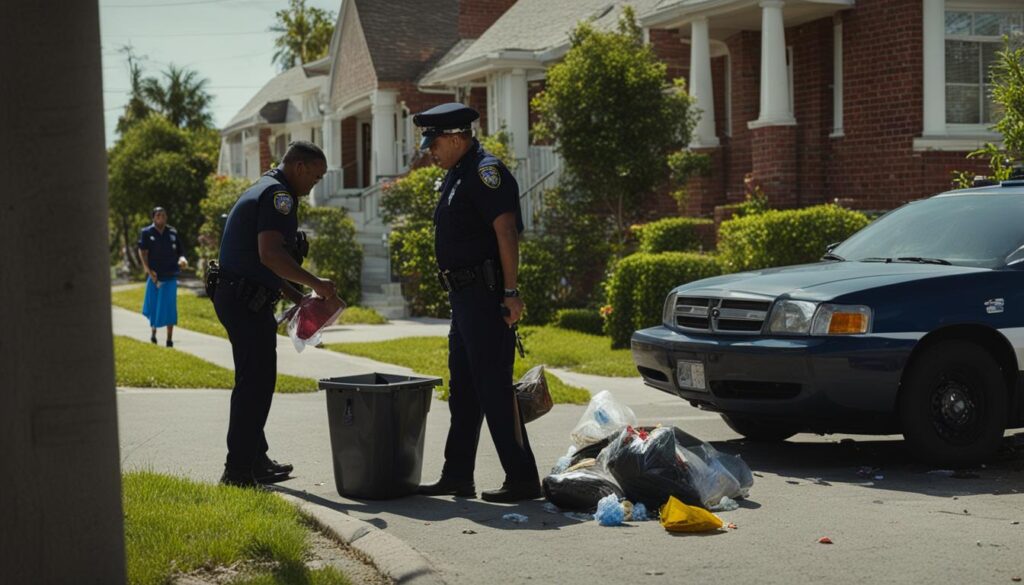
Remember:
- Always use designated trash bins and recycling facilities for proper waste disposal.
- Avoid littering on public or private property.
- Dispose of trash in a way that respects the environment and the laws of Nebraska.
Dumpster Diving and the Law
Dumpster diving, the practice of searching through someone’s trash for discarded items, is a controversial topic with legal implications. While dumpster diving itself is not considered illegal in most states, including Nebraska, it’s important to understand the legal boundaries surrounding this activity.
Generally, dumpster diving is considered legal as long as the garbage has been placed in a public area for pickup. Once the trash is on the curb or in a designated area for disposal, the person who discarded it has forfeited ownership rights. This means that anyone can legally go through the trash in these public areas.
However, the legality of dumpster diving changes when the trash is still on private property or in an enclosed area, such as a dumpster. In these cases, going through someone’s trash without permission may be considered trespassing. Since private property is protected by law, individuals who engage in dumpster diving on private property without authorization may face legal consequences.
If you’re considering dumpster diving, it’s crucial to be aware of local ordinances and regulations regarding trash and recycling to ensure compliance with the law. While dumpster diving itself may not be illegal, it’s important to respect private property rights and avoid trespassing.
Protecting Yourself Against Dumpster Diving and Identity Theft
To protect yourself against dumpster diving crimes and identity theft, it is important to take certain precautions.
Shred or destroy any personal information before discarding it in the trash. This includes documents with sensitive details such as social security numbers, bank statements, and credit card statements. By rendering the information unreadable, you significantly reduce the risk of it falling into the wrong hands.
Avoid placing trash out earlier than necessary and retrieve bins as soon as possible. The longer your trash sits unattended, the more opportunity there is for dumpster divers to rummage through it. Try to time your trash disposal with the collection schedule, ensuring your garbage is out only when necessary.
Report any suspicious behavior in your neighborhood to the appropriate authorities. If you notice individuals loitering around dumpsters or going through trash in an unauthorized manner, it’s important to notify law enforcement. Prompt reporting can help deter criminal activity and protect your community from potential theft or privacy breaches.
Businesses can consider donating unsold food or properly disposing of sensitive information to reduce the risk of dumpster diving-related crimes. By partnering with local charities or implementing secure document disposal practices, businesses can minimize the appeal of their trash to potential criminals. Not only does this help prevent dumpster diving crimes but also supports community initiatives and environmental sustainability.
Remember, prevention is key when it comes to protecting yourself against dumpster diving and identity theft. By being proactive and taking these precautions, you can minimize the risk of falling victim to these crimes and safeguard your personal information.
Protective Precautions Against Dumpster Diving and Identity Theft
- Shred or destroy personal information before discarding it
- Avoid leaving trash unattended for extended periods
- Report suspicious behavior to authorities
- Consider donating unsold food and secure document disposal
Conclusion
In Nebraska, dumpster diving is generally considered legal when the trash has been placed in a public area for pickup. Once discarded, the ownership rights are forfeited, allowing others to go through it. However, it is important to note that going through someone’s trash on private property without permission may be considered trespassing.
While dumpster diving itself is not illegal, it is crucial to understand that the use of personal information obtained through dumpster diving for illegal purposes, such as identity theft, is a criminal offense. Nebraska does not have specific laws addressing trash privacy or dumpster diving, but using someone’s personal information acquired in this manner is not protected under the law.
To ensure compliance with local laws and regulations, individuals must be aware of the guidelines regarding trash and recycling in their area. Taking precautions, such as shredding personal information before disposal and promptly retrieving trash bins, can help protect against potential legal issues and safeguard against dumpster diving-related crimes.
Source Links
- https://www.legalmatch.com/law-library/article/is-dumpster-diving-illegal.html
- https://nebraskalegislature.gov/laws/statutes.php?statute=28-523
- https://journalstar.com/news/local/govt-and-politics/snooping-through-your-neighbors-garbage-is-legal-in-nebraska/article_a186babc-835e-5699-85a6-d53c517e8653.html

Subscribe to Our Newsletter

